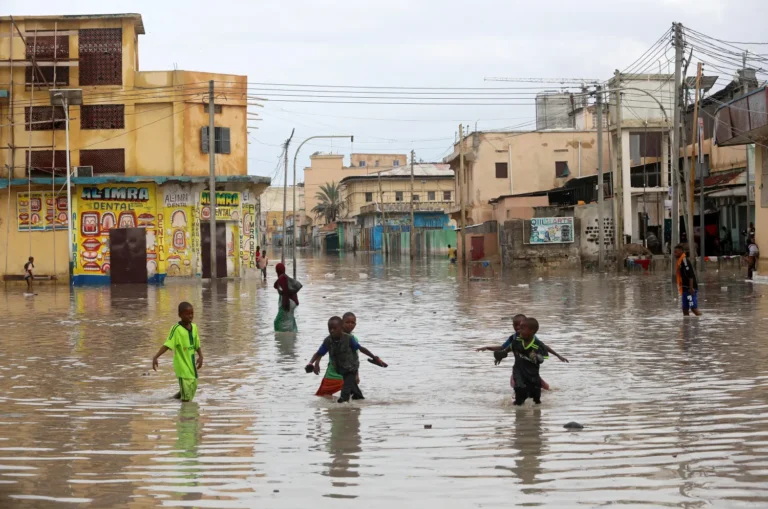A workshop aimed at strengthening the partnership between researchers and policy-makers was held on 27 and 28 November in Saly, 85 km west of the capital Dakar, APA can report.
Senegal, like many countries in sub-Saharan Africa, is facing growing challenges related to climate change. This phenomenon is exacerbating the vulnerability of agricultural, water and pastoral systems, threatening food sovereignty and socio-economic stability.
Against this backdrop, a national workshop organised by ICRISAT and its partners in Saly on 27-28 November brought together researchers, policy-makers and various stakeholders to brainstorm on pragmatic solutions. The main objective is clear: narrow the gap between scientific production and public policy to promote effective adaptation to climate impacts.
“The aim of this workshop is not to radically innovate Senegal’s agricultural policy, but rather to examine how existing policies can be effectively implemented to minimise risks for smallholder farmers in the livestock, crop and fisheries sectors. Stakeholders are coming together to reflect on the best approaches to optimise the application of existing agricultural policies in the country,” said Dr Folorunso Akinseye, an agro-climatology scientist at the International Crops Research Institute for the Semi-Arid Tropics (ICRISAT).
The impact of climate change in Senegal is multifaceted. Prolonged droughts, increasingly erratic rainfall and more frequent flooding are affecting agricultural productivity.
These hazards are accompanied by massive migrations of fisheries resources northwards, exacerbating the pressure on livelihoods.
At the same time, soil degradation is reducing the productivity of agricultural land and increasing the challenges faced by small farmers. The figures from the National Agency for Statistics and Demography (ANSD) are alarming: Senegal has a deficit of 1.3 million tonnes of rice and 700,000 tonnes of wheat.
Solutions exist, but decision-makers struggle to access them
For more than a decade, Senegalese researchers, supported by international initiatives such as One CGIAR’s ClimBeR, have been producing robust scientific results and innovations adapted to the local context. For example, the Climate Smart Governance Dashboard platform developed under ClimBeR provides an integrated framework to guide climate policy in Senegal.
However, as Issa Ouédraogo, senior researcher at the Alliance of Diversity International, points out, “the scientific evidence is there, but it is still not widely disseminated or integrated into public policy.”
This observation illustrates a major challenge: the role of researchers is often limited to producing data, while the task of popularising and implementing the results falls to government institutions and policy-makers. Indeed, “one of the aims of this workshop is to narrow the gap between researchers and policy-makers so that we can better address the adverse effects of climate change,” said Dr Ouédraogo.
In Senegal, structures such as the National Agricultural and Rural Advisory Agency (ANCAR) and the Regional Directorates for Rural Development (DRDR) play a key role in disseminating agricultural innovations. However, according to workshop participants, the capacity of these structures needs to be strengthened to ensure that scientific solutions are disseminated more widely and effectively.
The critical role of agricultural mechanisation
One of the key points discussed at the workshop was the need to modernise agricultural mechanisation by adapting it to the climatic and economic realities of small-scale producers. Bounama Dièye, Director of Rural Equipment Modernisation, presented some innovative perspectives on mechanisation.
For him, it is imperative to develop an agricultural mechanisation policy tailored to the needs of producers, taking into account climate variability and change. This approach must be based on sound scientific evidence.
According to him in this respect, “researchers and research institutes are called upon to provide convincing results to support the implementation of the approach adopted by the Senegalese state.”
This involves gradually abandoning the purchase of tractors and giving them to individuals in favour of subsidising agricultural services. The aim is to democratise access to these services so that smallholders and family farms can benefit from effective mechanisms to improve and increase their agricultural productivity.
The Saly workshop also identified specific objectives to guide public policies towards better adaptation to climate challenges. Firstly, to strengthen the coherence of agricultural policies by incorporating the latest scientific advances to ensure their relevance and effectiveness.
Secondly, the workshop highlighted the need to identify the gaps in current strategies in order to develop policies that are better adapted to the country’s climate realities.
Prioritising investment in research was also highlighted as a key lever to encourage the development of innovative tools and approaches.
Finally, there was a call to promote multi-sectoral cooperation, in particular involving researchers, NGOs, agricultural producers and public decision-makers, in order to create lasting synergies to meet the challenges of climate change.
A platform for enhanced dialogue
The National Platform for Science-Policy Dialogue on Adapting Agriculture to Climate Change (CCASA), set up by the French Ministry of Agriculture, plays a central role in this process. This multi-stakeholder structure facilitates synergies between researchers and decision-makers, enabling scientific findings to be translated into effective policies.
“It is essential to strengthen these platforms to ensure that all actors, from researchers to producers, contribute to the development of sustainable solutions,” said Dr Cheikh Gueye, moderator of the workshop.
At the end of the workshop, participants hope to produce a detailed action plan and pragmatic recommendations for improving climate adaptation policies.
These will be submitted to the Senegalese government for validation and implementation. Efforts will also be made to create an institutional framework for better interaction between research and public policy.
”We can only meet the challenges of climate change by building a solid bridge between science and policy. This workshop is an important contribution to this collective effort”, Dr Akinseye concluded.
ARD/te/lb/as/APA


